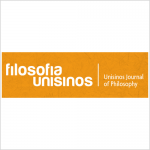Davidsonian semantic theory and cognitive science of religion
Vol 19, No 3 (2018) • Filosofia Unisinos - Unisinos Journal of Philosophy
Autor: Mark Quentin Gardiner, Steven Engler
Resumo:
This article investigates the extent to which the cognitive science of religion (CSR) and Donald Davidson’s semantic holism (DSH) harmonize. We first characterize CSR, philosophical semantics (and more specifically DSH). We then note a prima facie tension between CSR and DSH’s view of First-Person Authority (that we know what is meant when we speak in a way that we do not when others speak). If CSR is correct that the causes of religious belief are located in cognitive processes in the mind/brain, then religious insiders might have no idea what they are talking about: only the scholar of CSR would have a chance of knowing what they ‘really’ mean. The article argues that the resolution to this problem is to take seriously DSH’s rejection of semantic bifurcation, specifically rejecting the idea that religious and non-religious language can be sharply distinguished. We conclude by supporting the following claims: (i) common cognitive neural/psychological processes are explanatorily relevant in proposed meaning-theories for any discourse, and (ii) those processes need semantic supplementation with reference to external and naturalistic factors (biological, cultural, environmental etc.).
ISSN: ISSN: 1984-8234
Texto Completo: http://revistas.unisinos.br/index.php/filosofia/article/view/fsu.2018.193.13
Palavras-Chave: cognitive science of religion, cognitive theo

Filosofia Unisinos - Unisinos Journal of Philosophy
The journal Filosofia Unisinos - Unisinos Journal of Philosophy is published once every four months by Universidade do Vale do Rio dos Sinos.
Articles must be original, unpublished, and not under consideration for publication anywhere else and can be written in Portuguese, English or Spanish
Filosofia Unisinos - Unisinos Journal of Philosophy prints articles, translations and critical book reviews. It also reprints papers that are considered fundamental to the area when authorized written permission is given by the original publisher.
